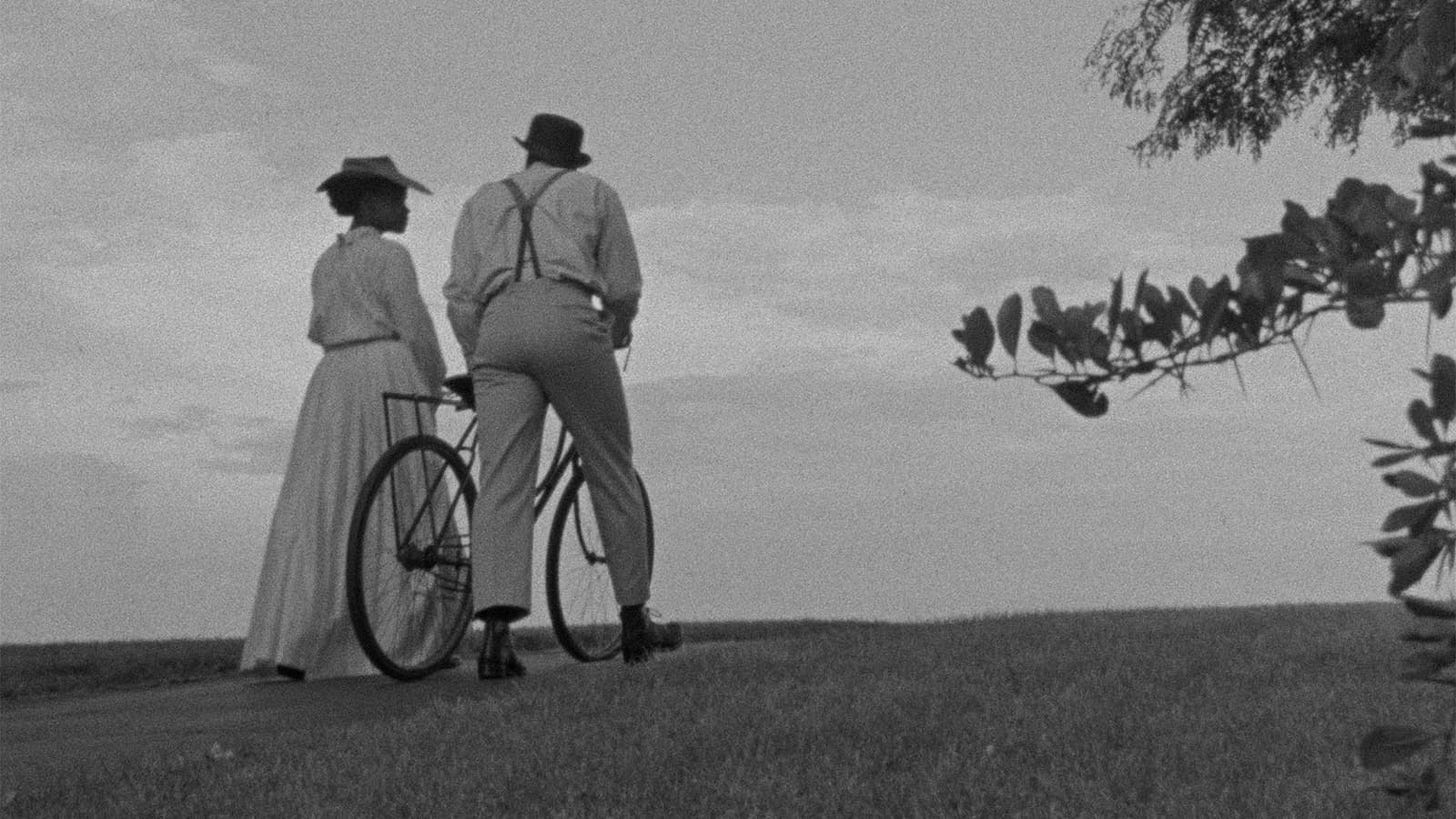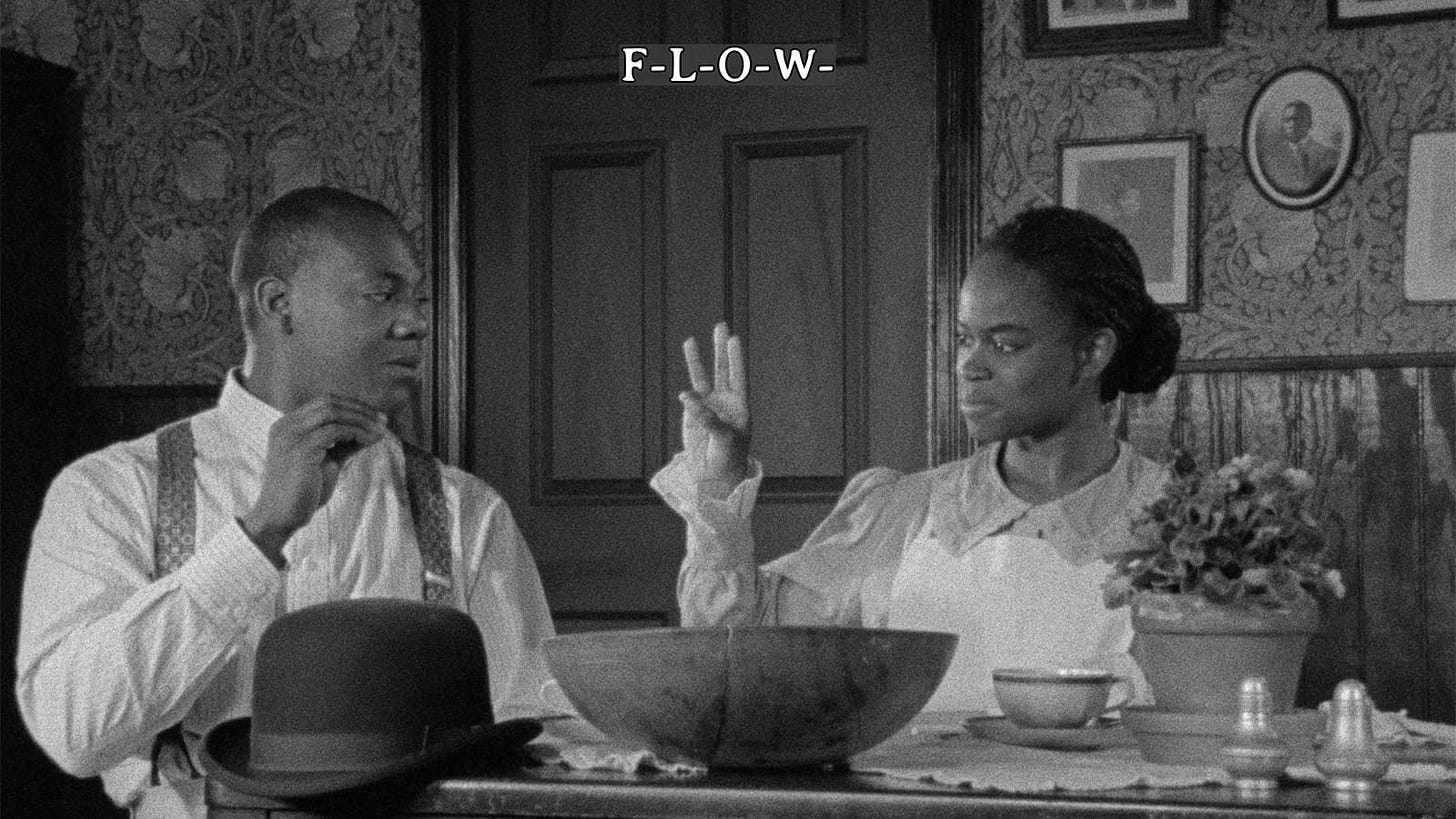Earlier this year, I presented independent research at a conference for the first time. The presentation and paper proposed that on-screen masculinity is an ever-changing template that is impacted constantly by racial attitudes and civil rights advances. During the post-presentation panel, I was asked if I felt optimistic about the future of Black cinema. The attendee explained that their question was about the already staggering actions taken by the Trump administration. While Trump and his administration are not and have not been the only threat to Black cinema, I understand the necessity of such a question. Despite my own unease about the current state of American politics, I immediately answered yes.
I went on to explain that, despite my research’s focus on wide-release, commercially successful films, my optimism for the future of Black cinema is reserved for independent film. This optimism was justified when I attended the Lincoln Center premiere of Compensation (dir. Zeinabu irene Davis), a black-and-white romantic drama. The film was completed throughout the 1990s and premiered in the festival circuit in 1999. However, after failing to find a distributor, the film was inaccessible for the next 20+ years. It wasn’t until 2021 that the film was available for streaming through the Criterion Channel. The film’s wide release and restoration was a joint effort, brought to life by the Criterion Channel, the UCLA Film and Television Archive, the Sundance Institute, and the resilience of Davis and her production company, Wimmin with a Mission Productions. Compensation’s “rejuvenation” process, as it is referred to by Davis, takes advantage of newer captioning techniques and technological advances to create a more inclusive experience for deaf and hard of hearing audience members.
Telling two Chicago love stories on opposite ends of the twentieth century, Compensation is a reminder that issues of racism, ableism, and finding love despite oppression are timeless. In the earlier era, viewers are introduced to Malindy (Michelle A. Banks), a young Black seamstress from a middle-class background. Malindy is deaf, but due to her experiences at a school for the deaf, she is highly educated. On a fateful day at the beach she meets Arthur (John Earl Jelks), an illiterate low-wage worker who is one of millions of Southern Blacks who has undertaken the Great Migration. On that same beach decades later, a Deaf artist named Malaika is approached by Nico, a smitten librarian who eventually gets Maliaka to go on a date with him. Despite differences in class, education, and ability, love blossoms between both couples. And yet, the optimism of love is shattered by matters outside of the two young people’s control; Arthur, needing to work to survive, contracts tuberculosis, while Malaika is living with HIV.
From the onset, Compensation plays with ideas of temporality. Weaving between early 1900s and the 1990s, the audience is left keenly aware of the parallels between the two time periods. Whether a silent film theater or a jazz club, Davis intentionally represents the power and necessity of Black creative spaces. Both Malindy and Malaika are transformative forces in their lovers' lives. Malindy teaches Arthur to read and write, while Malaika inspires Nico to learn American Sign Language and immerse his students in the Deaf and hard of hearing world. Black activism, too, is a common thread across timelines. Malindy must fight to reintegrate the deaf institution she once attended, while Nico is a clear student of the Black power movement, teaching his students to take pride in their Blackness.
The lessons of Compensation are varied but necessary for this moment in time. Malindy is a proponent for reintegration, a reminder that freedoms once experienced are never guaranteed, but instead must constantly be advocated for. Compensation also tells the story of two epidemics, tuberculosis and AIDS, highlighting the fact that the most vulnerable people are also the most susceptible to contracting illness, a fact felt all too well throughout the on-going Covid-19 pandemic. The film’s form continually contributes to a sense of timelessness. Davis heavily utilizes archival images in the film, showcasing the rich lives of Black Americans at the beginning of the twentieth century. The film is shot in black and white, with scenes grounded in silent-era title cards. The film’s score seamlessly weaves the ragtime tunes of Reginald R. Robinson and the masterful composition of African instrumentalist Atiba Jali. The lessons go beyond what we see on screen; the story of Compensation’s rejuvenation process is a cautionary tale of what is lost when freedoms are stripped and histories are erased. The fact that the film was restored after over two decades of being lost to viewers is a reminder that underrepresented voices have always been there, but it is everyone’s responsibility to ensure that their stories are heard, saved, and shared regardless of inequalities in film distribution. Further, Davis could not do this rejuvenation alone. Making Compensation available to wide audiences was a collective effort, illustrating what can be achieved when groups are devoted to the dissemination of stories from marginalized people. Davis takes full advantage of open caption technology to include descriptions of music as well as changing the position of the captions to make it clearer who is speaking. Even the film’s name, taken from a poem by Paul Laurence Dunbar, showcases how looking back, finding the words of artists of past generations, often gives us the words to articulate modern sensibilities.
In many ways, the current state of the film industry feels bleak. Black film makers are being shut out of film festivals and major routes for finding distribution. The efforts of Black artists to correct this discrimination are being maligned as too “woke.” Corporations and their use of AI are telling creatives that their artistic endeavors are replaceable. It is refreshing to see a film that embraces both history and modern technology to allow for a breakthrough related to work of the past. It is a reminder that the stories of the past can and do continue to interact with us in the present. Even in its bleakest moments, Compensation tells us that the issues we face today are often mere reflections of what past generations have experienced and endured. Compensation reminds of that there is hope and love, through sickness, through discrimination, and through barriers to access in the film industry. When I think of the future possibilities of Black filmmaking and the stories that can be told, there is much to learn from Zeinabu irene Davis and the long journey of Compensation.
Read more by Kaycee Michelle here.











You write with such clarity and passion. I loved this piece!